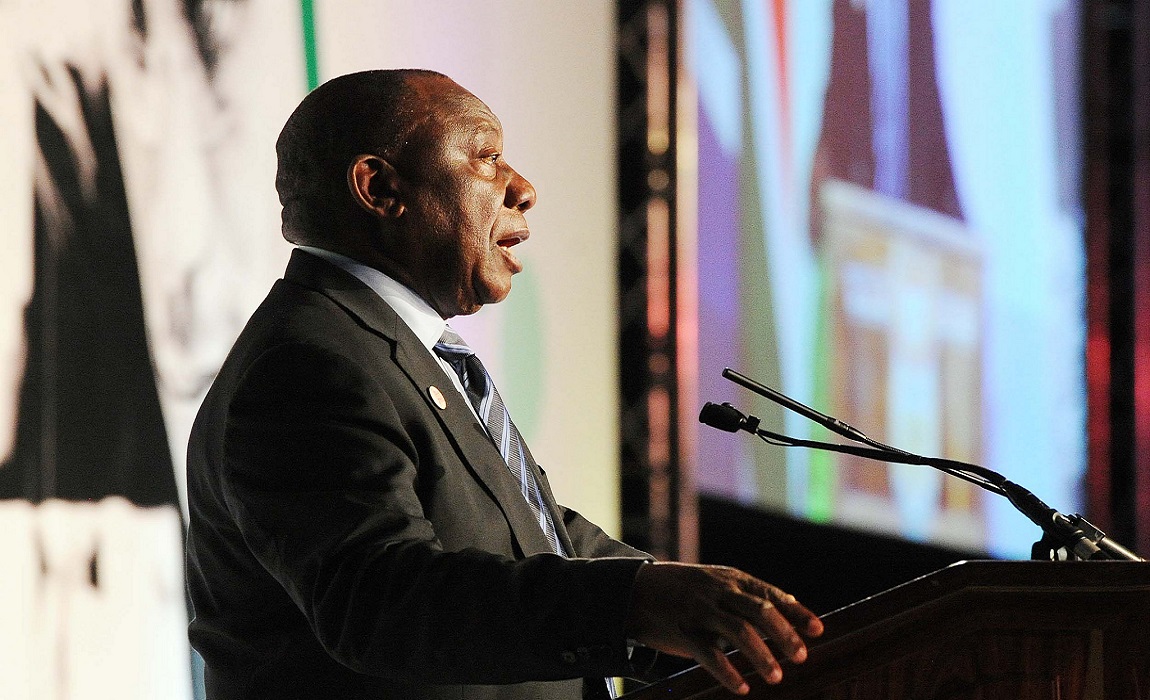In light of the controversy surrounding Grace Mugabe’s visit to South Africa, and speedy departure, Mohau Bosiu says that we as Africans must hold our leaders, and those close to them, to account.
On 13 August 2017, a lady rose out of her bed and like many of us, in the banal ways of daily life prepared herself for work. She got to work, attended her duties.
She had not imagined that another woman, married to a president of another country, would go viciously flogging people with an extension cord. That the victims would incur painful wounds, flee with trepidation, from the harsh crackling sound of power cord against human body and whatever object on the way. That in the process she herself would be injured, she would miscarry.
There was something in her belly. Something forming, moulding. Creation. A life. A promise.
Denied by misfortune. She is left with pain and trauma.
The woman married to the president of another country returned to her country. Safely. Whisked away in presidential jet.
She came, inflicted pain and now she’s gone. Granted diplomatic immunity.
We live in an age where the mighty trample on the lowly with impunity. We want to do away with this, because it is not what we want. So most recently, we, the people of Africa and her diaspora, united in diversity, through the African Union (AU), came together to outline the Africa we want and agreed on a framework known as Agenda 2063.
Although indirectly, Agenda 2063 dissuades barbaric behaviour and such attitudes exemplified by this woman married to a president of another country. Perhaps most inclined to this subject in Agenda 2063 is the third aspiration which speaks about ‘an Africa of good governance, democracy, respect for human rights, justice and the rule of law’. The clearest assertion contained in this aspiration is that ‘…impunity will be a thing of the past.’
The question might be posed: how do we ensure that? Given that this matter is an international relations issue, albeit on one continent – the African continent – if we take a cursory glance at the Constitutive Act of African Union; we can be encouraged that on 11 July 2000, in Lome, Togo, all 53 heads of state/government, including the president married to the woman who flogged people with an extension cord, signed this Act ‘determined to promote and protect human and people’s rights… to ensure good governance and the rule of law’.
This determination to protect people’s rights is a noble principle. However, the intention to do good, no matter how noble, does not guarantee that such good will be done. This is why we devise laws that govern human society and elect leaders to enforce those laws.
When electing these leaders, we don’t conduct lifestyle audits for them or their spouses. We could not have contemplated that in modern day economic and bilateral relations one married to an official of one country would exercise inexplicable savagery on inhabitants of another when they visit.
Given this tricky situation, as a nation with its own national Constitution, we cast our eyes toward the president, for ‘only upon him has the constitutional obligation to uphold, defend and respect the Constitution as the supreme law of the Republic been expressly imposed.’
We look to him to shine a little light to our path because ‘he is a constitutional being by design, a national pathfinder, the quintessential commander-in-chief of State affairs and the personification of this nation’s constitutional project,’ as asserted by the Constitutional Court in the Nkandla ruling.
There are families who have been aggrieved, and in the wider community, journalists, activists and ordinary South Africans are concerned. These families seek justice. There’s also an argument advanced about maintaining peaceful relations with our northern neighbour. Our president cannot be silent. He should intervene to outline how justice will prevail for the aggrieved families and maintain the aspiration of Agenda 2063 to ensure impunity becomes ‘a thing of the past.’
This is not a matter exclusively to be discussed by law experts, government officials and academia as it might seem in the news media. Ordinary people, those without a voice, are also concerned. Are our rights protected?
Justice and peace can co-exist. We don’t have to choose one and neglect the other. The woman married to the president of another country can be allowed to go back to her country, be ordered to pay medical bills of the victims and be barred from ever entering our country.
In the case that our country refuses to do so in defence of this one woman, then the matter should be referred to the African Union cognisant of the goals of Agenda 2063. I’m quite positive the union would act sensibly.
There are some who insist this is a political matter, insidiously implying that it be left to politicians. Their argument is quite absurd. Human rights aren’t a thing for politicians. To be worth something, you have to stand for a principle. Being politically savvy does not mean denouncing sensibility and virtue. We have to abide by the standard and correct aphorism ‘Batho Pele’ (People First)!
Mohau Bosiu is a communication practitioner and independent writer. He is also a volunteer of the National Foundations Dialogue Initiative.








